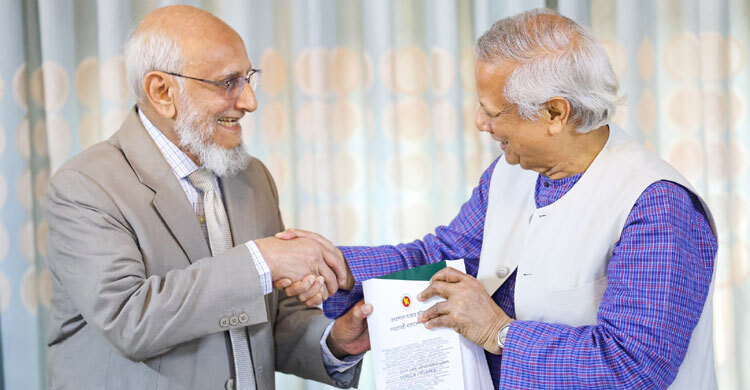Commission recommends dividing Bangladesh into four provinces

The Public Administration Reform Commission has proposed the introduction of a provincial administration system by dividing the country into four provinces, based on the borders of its historic divisions.
This recommendation aims to decentralize power, streamline service delivery systems, and alleviate pressure on Dhaka, the capital.
The details were revealed in the executive summary of the commission’s report, which was handed over to Chief Adviser Dr Muhammad Yunus on Tuesday (February 5) by commission head Abdul Muyeed Chowdhury and its members.
Key recommendations for provincial administration
According to the report, the growing population and expanding scope of government responsibilities have rendered the current administrative and local government structures inadequate.
In a centralised system, many critical tasks are concentrated at the ministry level, leading to inefficiencies. To address this, the commission suggests introducing a provincial administration system by dividing the country into four provinces, aligning with the boundaries of the old divisions. This move would decentralize services for the large population, reduce opportunities for centralization of power, and ease the strain on Dhaka.
Abolition of district councils
The commission also recommends abolishing District Councils due to their limited effectiveness and financial dependency. Most District Council Chairpersons are not directly elected by citizens, and many councils lack robust revenue sources, making them financially unsustainable. Resources from these councils could instead be transferred to the proposed provincial governments.
Strengthening local govt institutions
Municipalities
To enhance local governance, the commission proposes further strengthening municipalities. It recommends that Municipality Chairpersons be elected by ward members rather than direct public votes, ensuring accountability within the council. This change aims to address the issue where members often lose interest after the Chairman is elected.
Upazila Parishads
The Upazila Parishad should also be strengthened as a key local government institution. However, the post of Vice Chairman may be abolished to simplify the structure. To make the Parishad more representative, one-third of Union Parishad members could serve on a rotational basis as Upazila Parishad members.
Additionally, the Upazila Nirbahi Officer (UNO) should focus solely on reserved matters such as law and order, land management, examination oversight, and mobile court operations, operating independently of political influence. A Senior Assistant Secretary-level officer could serve as the Secretary of the Upazila Parishad, while a new Class II Land Management Officer position could be created at the Upazila level. These officers would be promoted from among Kanungos working under the Land Ministry, with promotions overseen by the Public Service Commission (PSC). Over time, they could advance to become Assistant Commissioners (Land).
Union Parishads
The commission recommends increasing the number of wards in Union Parishads to 9-11, depending on population size. Two representatives—one male and one female—should be elected per ward, ensuring 50% representation for women and expanding their roles. The UP Chairman would be elected by member votes, addressing concerns about diminished member relevance post-election.
Furthermore, the commission suggests assigning greater responsibilities to Union Parishads, including overseeing non-formal and mosque-based education programs. Committees focused on agriculture, water management, healthcare, and other essential services could be established under the leadership of the UP Chairman. Village courts or arbitration systems could also be fortified through public hearings, inviting community participation to resolve disputes effectively.
Enhancing community engagement
To ensure transparency and inclusivity, the commission advocates forming committees via public hearings, allowing residents to participate actively in decision-making processes. This approach seeks to empower local communities and improve the efficiency of service delivery at grassroots levels.

